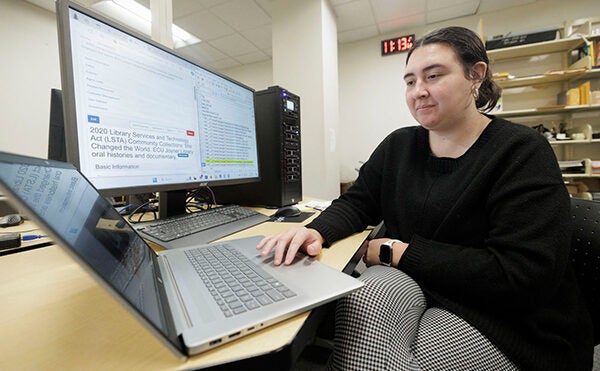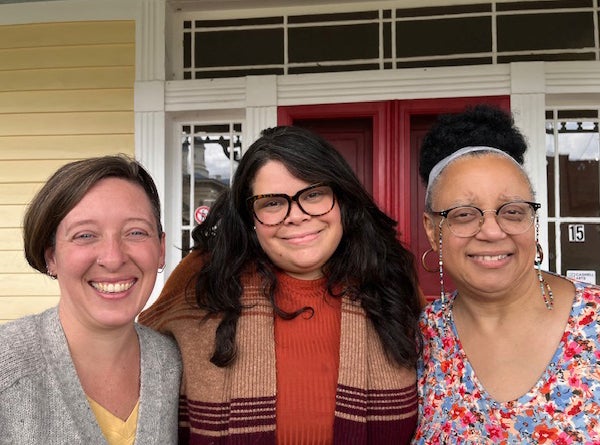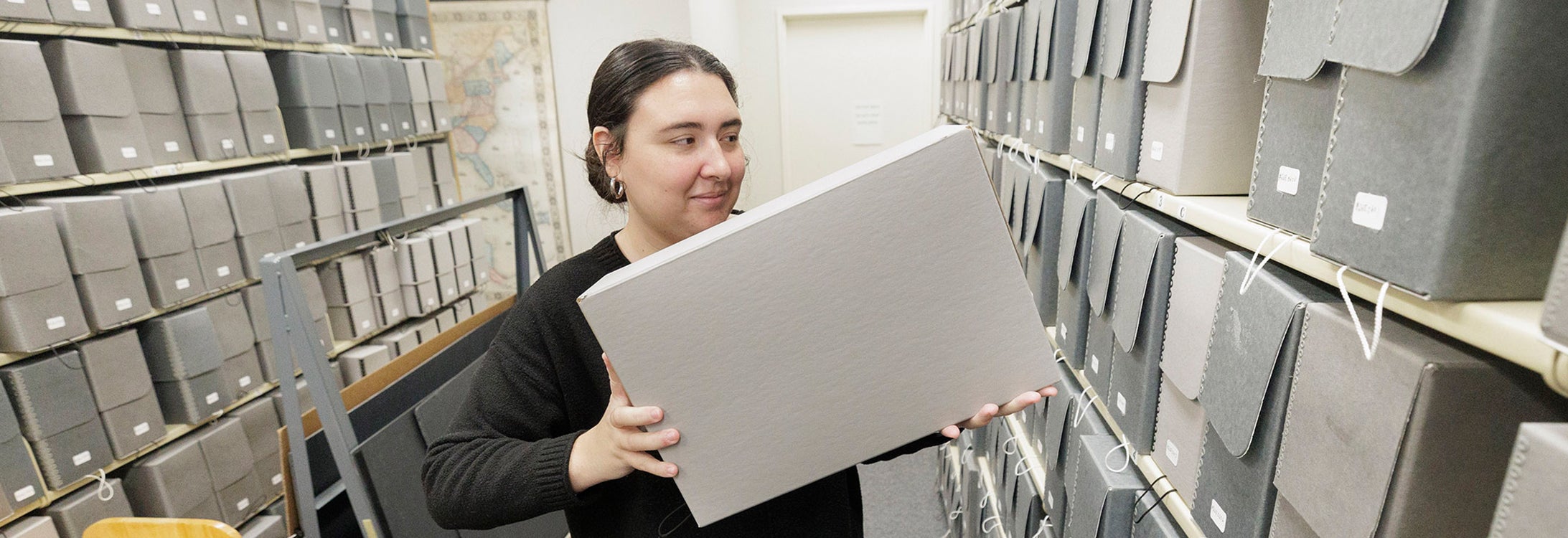Mellon Foundation funds paid internship program
East Carolina University will receive more than $1 million for the College of Education (COE) to support paid archival studies internships through a first-time grant from the Mellon Foundation’s Public Knowledge program.
Faculty Organizing for Community Archives Support (FOCAS), a collaborative of faculty from nine universities in the U.S. and Canada, has been awarded $6,150,000 to support paid internships at community archives. COE faculty members — Drs. Vanessa Reyes, Vanessa Irvin and Lindsay Mattock — in the library science program will represent ECU in the faculty collaborative.
The three-year program will fund the placement of archival studies students in more than 40 archives. The project also will support curricular development, directly fund community archives for their services and expertise, and fund student participation in conferences and professional associations.
“This collaboration and investment will provide on-the-job learning opportunities for ECU students and help improve student success for our library science program,” Chancellor Philip Rogers said. “We are grateful to the Mellon Foundation for investing in the College of Education and our students. This opportunity will help prepare graduates for success at ECU and beyond.”
This grant is shared by the FOCAS collaborative of faculty from ECU, University of California, Los Angeles, University of Washington, University of Arizona, City University of New York, McGill University, University of British Columbia, Dominican University and University of Chicago’s Black Metropolis Research Consortium.

Autumn Gollick works on a Special Collections project in Joyner Library.
“This grant from the Mellon Foundation is a transformative milestone for our library science program,” said Dr. André M. Green, dean of the College of Education. “It strengthens our efforts to prepare students for the evolving demands of library and information sciences while fostering partnerships with community archives across North Carolina. By connecting students with real-world projects, we are creating opportunities for meaningful engagement and equipping graduates with the skills needed to make a lasting impact in their field and communities.”
The FOCAS project responds to several key needs:
- the need for master’s in library science (MLIS) students from historically underrepresented communities to get professional experience that reflects their own communities’ values and practices;
- the need for students to get paid for their labor;
- the need for MLIS programs to diversify and pluralize their curriculum;
- the need for community archives to have labor to support their vital work.

College of Education faculty members, Drs. Lindsay Mattock, Vanessa Reyes and Vanessa Irvin, represent ECU in the grant project. (Photo by Karen Williamson)
“This prestigious award marks a pivotal moment for the program, perfectly aligning with our strategic vision to elevate educational quality, foster cutting-edge research and deepen our engagement with the community,” said Reyes, library science assistant professor. “These funds will be instrumental in advancing our mission to adeptly equip students for the dynamic landscape of library and information science, bolster community archive initiatives and offer invaluable paid internship opportunities. This grant not only enriches the academic journey but also intimately connects students with the rich cultural heritage of North Carolina, ensuring a comprehensive and impactful learning experience.”
Through these funds, library science graduate students will have access to enhanced learning opportunities, such as hands-on experiences with archival technologies and methodologies.
Reyes said local historical societies and cultural heritage organizations have developed partnerships with public libraries across North Carolina through the grant. The organizations will benefit from the fresh perspectives of ECU students, while the students gain invaluable experience and professional connections.
This work builds on the success of the University of California, Los Angeles Community Archives Lab’s paid internship program, which has placed 42 second-year library and information science students at community archives across Southern California over the last six years. This created a pipeline of former interns who have been hired as professional archivists at several participating sites. Reyes, Irvin and Mattock hope to build a similar pipeline in North Carolina.
“The long-term outcomes include the development of a robust and dynamic library science program that produces highly skilled graduates,” Reyes said. “For community-based archival organizations, the grant aims to build capacity, improve archival practices and ensure the preservation of local history. The goal is to create a sustainable model of collaboration that benefits both the university and the community.”
